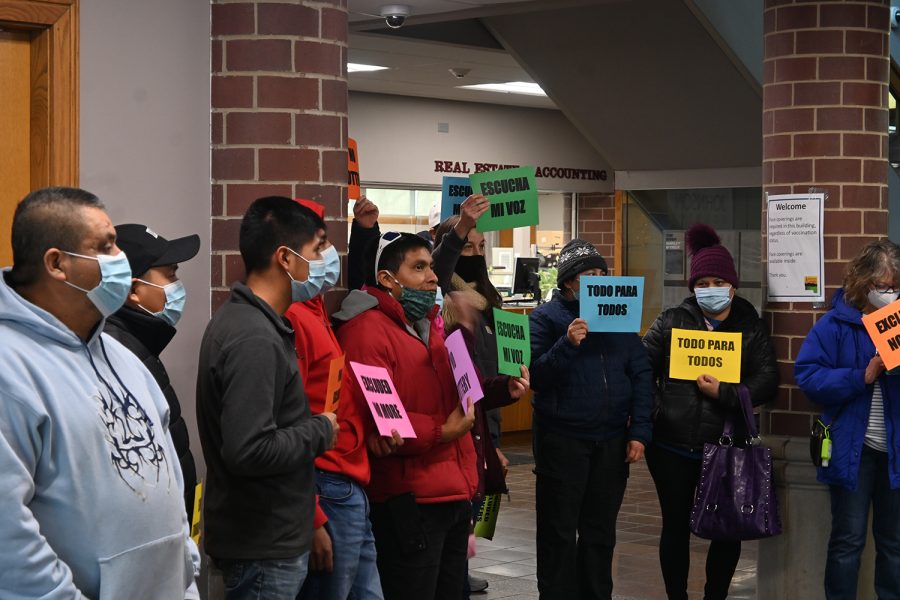
University of Iowa officials gathered with veterans in honor of Veterans Day, focusing on the future of veteran health care.
“[Healthcare is an] extremely important topic and how we respond to the people that serve our country is obviously a very, very important issue for all of us,” said Peter Damiano, the director of the UI Public Policy Center.
A variety of veterans and VA employees hosted a panel Tuesday titled “The Future of Health Care for Veterans” to talk about the realities of veterans’ health care, how it could be made better, and what the future could look like.
Damiano, a retired lieutenant in the U.S, Public Health Service, hosted the panel, which was presented by the Forkenbrock Series on Public Policy.
Rep. David Loebsack, D-Iowa, attended and acknowledged the recent scandal concerning the VA, in which many were concerned about the time veterans had to wait to receive care.
Loebsack contrasted the negative comments by saying he thinks Iowa’s facilities operate with skill and efficiency.
“Those are pretty darn good facilities,” he said. “We have issues with health care there, there’s no question about that … but relatively speaking, the health care that our veterans get in Iowa is pretty darn good.”
He also noted that veterans’ issues seem to be one thing that a gridlocked Congress can work on.
“Veterans’ affairs has been kind of the shining example of what we actually can do if we put down our political partisan arms and work together [and] work across the aisle,” he said.
Peter Kaboli, the chief of medicine at the Iowa City VA Health-Care System and keynote speaker of the event, talked about the structure of the Department of Veterans Affairs and its goals in the future.
“I think that the VA, since I’ve been there, has really evolved into an organization that really does try to learn how to do things better, and I know it doesn’t seem that way when you watch the news, because there’s always something we’re getting beat up for, but I can tell you … [we’re] constantly looking for ways to improve,” he said.
He noted that the VA’s not being a “fee-for-service” system sets it apart from the private sector.
Because all veterans under the VA get the same insurance, he said, they get the same treatment, making it more equitable.
“Basically, everybody that I take care of in the hospital, I know can afford their medications, I know that they’re not going to become bankrupt because they ended up with a 30 or 40 day hospital stay,” he said.
Erin Siniff, a veteran and social worker at the Iowa City VA, said returning soldiers experience stress after facing numerous deployments.
“What we’re seeing today is an enormous influx of veterans in need …” she said. “They’re coming home from multiple deployments, which is unprecedented in our past periods of war.”
She said she’s worked with veterans who were dealing with combat trauma from not one deployment but sometimes as many as seven deployments.
Gary Marquardt, a past commander of the Veterans of Foreign Wars in Iowa, said despite veterans making up less than 1 percent of the general population, the need for adequate care for them is important.
“The wounds that are coming back are horrific,” he said.






